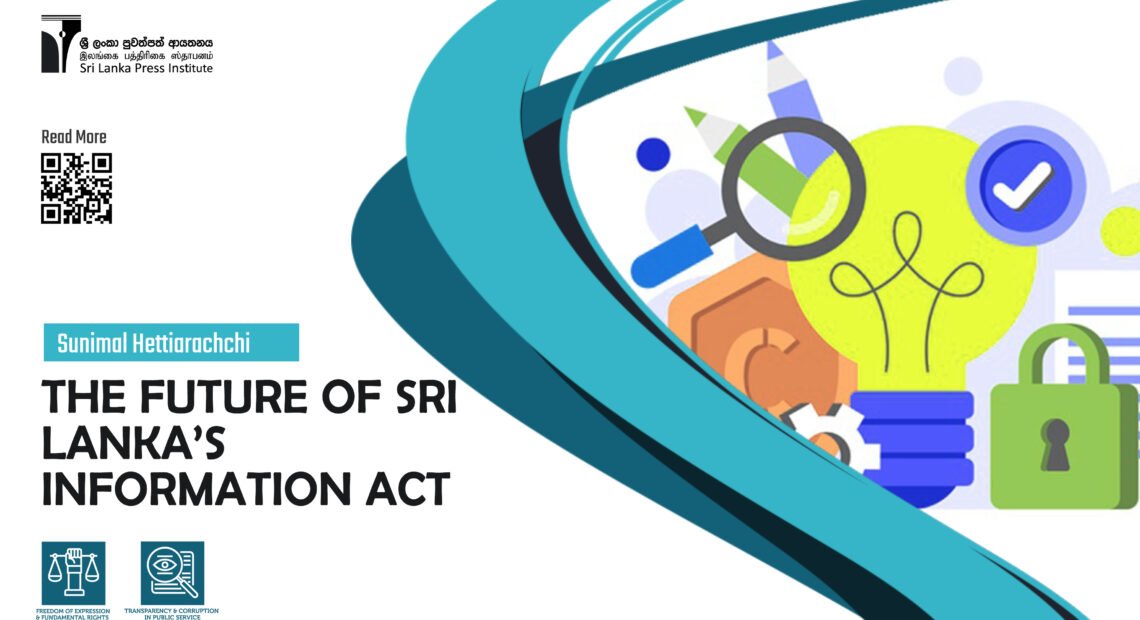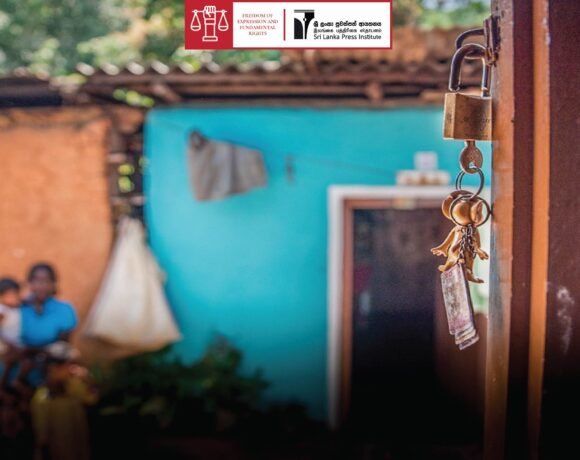Sunimal Hettiarachchi
Four years have passed since the Right to Information Act No. 05 of 2016 was passed by parliament in Sri Lanka. Regulations and gazettes were also enacted to set up the mechanism and methodology for the application of the Act in order to make it operational.
On the 28th of September this year, which is World Information Day, two concurrent seminars were held in Colombo to discuss issues that arose pertaining to the implementation of the Right to Information (RTI) Act in Sri Lanka. This article will attempt to examine the current state of the information act and its future, based on the results of these discussions.
It should be noted that one seminars included only the participation of media and civil society, while the other was attended by political representatives such as Media Minister Keheliya Rambukwella and former Speaker Karu Jayasuriya. At the first seminar organized by the Free Media Movement and held at the Sri Lanka Press Institute, a study of the decisions taken by the Information Commission regarding RTI was presented by lawyer Ashwini Nadesan along with journalists Rahul Samantha Hettiarachchi (freelance), S. Sivakumaran (Veerakesari) and Indunil Usgodarachchi (Ravaya).
Today, with the passing of the 20th Amendment to Sri Lanka’s constitution, the Right to Information Act has become a point of much dialogue once again. The new government leaders have stated on several occasions that they will continue to uphold the Right to Information Act. For a long time now the media community in the country has been working hard to make the right to information a law an on-ground reality in the country. In fact, they have attempted to create a culture of information in the country.
The media, who are considered to be the watchdogs of democracy attempt to expand the public’s right to information, strengthen democracy, reduce corruption within the regime in power, increase transparency and accountability, to give more meaning to the sovereignty of our country, and to achieve a number of things such as the active participation of citizens in the governance or development of the country.
Despite the repeal of the 19th Amendment to the Constitution and the introduction of the 20th Amendment, the Right to Information will remain unchanged, Media Minister Keheliya Rambukwella said on the 28th of October. Despite the government’s assurances, the reality is that appointing a Parliamentary Council to replace the Constitutional Council and to change the legal provisions that allow the appointment of judges and other government officials at the discretion of the President is a debatable point. Political pundits point out that this raises doubts about a new extremism and the political will to implement it.
However, the success or failure of the implementation of the Right to Information Act in Sri Lanka cannot be overlooked when it comes to the inaction of the Information Commission. From 2017 until the end of 2019, the total number of appeals received by the Information Commission was 2119. out of which the number of appeals received in 2017 was 230. In 2018, 800 appeals were received and in 2019, another 1089 were received by the Commission. According to the 2019 Annual Report, out of that number, 1466 appeals were resolved thus far. By the end of 2019, the number of pending complaints was 653. Four parties took legal action against the orders of the Commission and have approached the Court of Appeal. (Reference: Page 21 of http://www.rticommission.lk/web/images/pdf/annual_report/annual-report-2019-si.pdf)
According to the 22nd page of the annual report, over the past 3 years there are 17 complaints that can be prosecuted for non-compliance with the rules of the Commission. The annual report states that the Commission along with other with legal experts have studied the procedure for filing cases in the Magistrates’ Courts in this regard.
The study conducted by attorney-at-Law Ashwini Nadesan Weerabahu shows us how the Information Commission’s decisions have contributed to the country’s increase in transparency and accountability, and the decline of corruption.
The Commission received a large number of appeals (571) regarding institutional transparency. The second highest number of complaints (373), were related to employment and labor issues. Ashwini states that the appeals are those against the failure of the public authorities to provide information in a timely manner and to refuse to provide information.
One of the major challenges facing journalists applying the Information Law to investigative media is the publication of the Language Questionnaire in the provision of information by the public authorities. Some applications that were created in Tamil were responded to in Sinhala and vice versa. Language barriers and the need to commission additional translating facilities makes the process complicated for journalists. While some government agencies don’t have information officers at the time of submitting applications, others have information officers but they do not have a proper understanding of the relevant law. There are still several errors and omissions in the code of conduct, such as denial, misrepresentation, failure of the Information Commission to take legal action against these offenses, and a delay in providing information within the relevant timeframes.
The issues raised by journalists regarding the operation of the Freedom of Information Act can be considered to be errors and omissions in the implementation mechanism. Faults in the mechanism are mechanical faults. Mechanical errors must be corrected in order for the system to be more successful. At a time when we need to focus on mechanical error correction, we get bogged down in a discussion of what it constitutes or how the mechanism fails.









